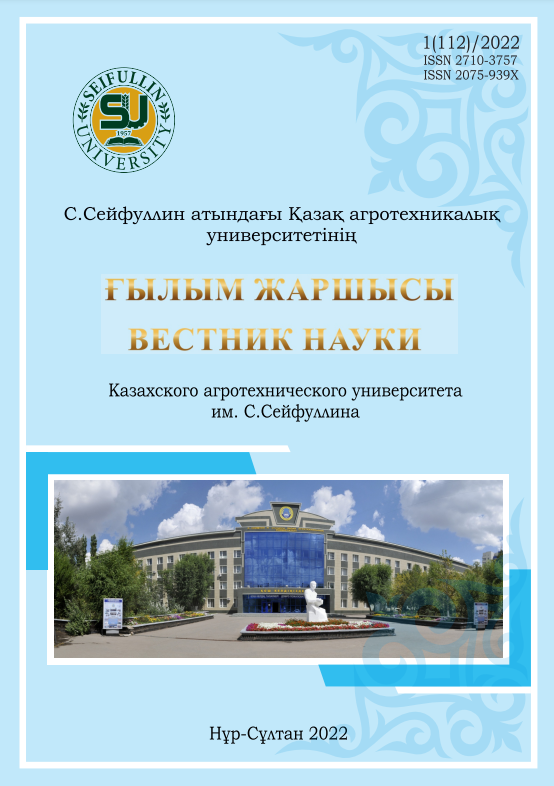CLONING, PURIFICATION AND STUDY OF THE BIOCHEMICAL PROPERTIES OF Α-AMYLASE FROM BACILLUS LICHENIFORMIS T5 STRAIN
DOI:
https://doi.org/10.51452/kazatu.2022.1(112).942Keywords:
α-amylase; Bacillus licheniformis; recombinant enzyme; plasmid; starch; hydrolysis; amylase activity.Abstract
Amylases are rather important enzymes in modern biotechnology. Alpha-amylases hydrolyze starch to form glucose and maltose and are involved in the conversion of starch-containing raw materials. In comparison with α-amylases of eukaryotic organisms, bacterial α-amylases have a number of advantages, namely, the preservation of enzymatic activity at high temperatures, which is important in enzymatic starch hydrolysis technologies. In this work, the α-amylase gene from the Kazakh strain of Bacillus licheniformis T5 was cloned into the pET-28c(+) vector. Recombinant α-amylase was obtained by plasmid expression in Escherichia coli strain ArcticExpressRP(DE3). Studies have shown that the pH and temperature optimum for the recombinant alpha-amylase was 6.5 and 80°C, respectively. As has been established that α-amylase is a calcium-independent enzyme. The study of the temperature stability of α-amylase showed that the enzyme retains more than 70% of its activity when α-amylase is incubated at 80°C for 30 minutes. The obtained results show a high prospect of using α-amylase from Bacillus licheniformis T5 as a thermostable enzyme in the technologies of enzymatic hydrolysis of starch-containing raw materials.

